Every one of us lives in our body every single day – and generally have for many years. For the most part, our bodies have a way of essentially behaving the same way every day. When something suddenly changes, it can be alarming. Generally, these sudden changes result in a trip to a doctor to determine the cause. No matter how great your health insurance is, however, a trip to the doctor can be expensive, not to mention time consuming.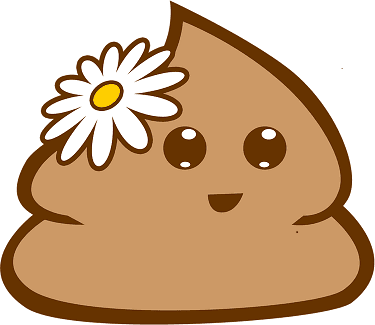 In addition, it can be a little embarrassing to show up to the doctor only to find out there is a perfectly innocent cause or reason for our condition- particularly when there isn’t any pain or discomfort related to it, it’s just different.
In addition, it can be a little embarrassing to show up to the doctor only to find out there is a perfectly innocent cause or reason for our condition- particularly when there isn’t any pain or discomfort related to it, it’s just different.
In addition, we also know that sometimes we just get sick – such as with a cold or the flu – and not every cough, sniffle or sneeze is a good reason to go running off to the doctor. Having green poop, however – particularly when combined with diarrhea – can definitely be concerning. While it may seem alarming at first, there are many cases in which green poop is actually nothing to be concerned about. Here is an overview of green diarrhea, why it happens, what causes it and how to know if you need to make a visit to a doctor.
Green colored food
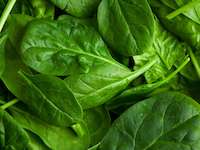 One of the most common causes for green poop is eating an overabundance of green foods. This is particularly true of foods that get their green coloring from food coloring. Some common food culprits are green popsicles, lime jello, green Kool-aid or other green colored drinks like Gatorade or Mountain Dew. Halloween in particular seems to be a time ripe with opportunities to eat foods laden with green food coloring. Black foods are actually also often created using deep green food coloring, so if you eat some of your over 40 friend’s tombstone themed cake, you are likely to experience a nice bout of green poo for a few days.
One of the most common causes for green poop is eating an overabundance of green foods. This is particularly true of foods that get their green coloring from food coloring. Some common food culprits are green popsicles, lime jello, green Kool-aid or other green colored drinks like Gatorade or Mountain Dew. Halloween in particular seems to be a time ripe with opportunities to eat foods laden with green food coloring. Black foods are actually also often created using deep green food coloring, so if you eat some of your over 40 friend’s tombstone themed cake, you are likely to experience a nice bout of green poo for a few days.
Food coloring isn’t the only culprit when it comes to food, however. Foods that are naturally green can also cause green poop. This is because green foods get their coloring from something called chlorophyll. Some of the most likely culprits are leafy greens like broccoli and spinach, drinks that contain a Super Food mixture or wheat grass shots. Theoretically, if you eat enough lettuce, it could cause green poop, but you’d have to eat a massive quantity of lettuce to get enough chlorophyll to turn your poop green.
Coffee, spicy foods or alcohol
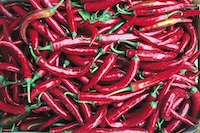 Another common cause of green diarrhea is foods that have a natural diarrhetic effect such as coffee, spicy foods or alcohol. Your body actually breaks food down in the small intestine into something called bile. Bile, which is naturally green, passes through the bile ducts to the large intestine where it is further broken down by bacteria. Coffee, spicy foods and alcohol can all speed up this process, causing something known as a “decreased transit time.” When the bacteria in your large intestine doesn’t have enough time to break foods down adequately, turning them from green to brown, it can result in runny green stool. Once again, this is not in and of itself a cause for alarm, but too much alcohol, coffee or spicy foods can all have a detrimental effect over time. If you get some runny green stool after a rare night over over-indulgence, however, there is no cause for alarm.
Another common cause of green diarrhea is foods that have a natural diarrhetic effect such as coffee, spicy foods or alcohol. Your body actually breaks food down in the small intestine into something called bile. Bile, which is naturally green, passes through the bile ducts to the large intestine where it is further broken down by bacteria. Coffee, spicy foods and alcohol can all speed up this process, causing something known as a “decreased transit time.” When the bacteria in your large intestine doesn’t have enough time to break foods down adequately, turning them from green to brown, it can result in runny green stool. Once again, this is not in and of itself a cause for alarm, but too much alcohol, coffee or spicy foods can all have a detrimental effect over time. If you get some runny green stool after a rare night over over-indulgence, however, there is no cause for alarm.
Iron
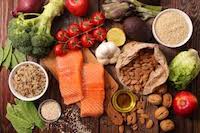 One of the reasons that broccoli and spinach in particular are likely to turn your poop green is that in addition to chlorophyll, they are also high in iron. Iron can also turn your poop green. Most people tend to struggle more with getting enough iron in their diet than too much, but there are certain medical conditions that can actually cause too much iron to circulate in your blood. This can create a condition called iron toxicity. Generally, having green poop for a few days is no cause for alarm. Even having green poop more regularly is not necessarily a cause for alarm if the reason is a diet high in chlorophyll rich foods. Green poop in combination with nausea, vomiting or stomach pain, however, is definitely an invitation to see a doctor.
One of the reasons that broccoli and spinach in particular are likely to turn your poop green is that in addition to chlorophyll, they are also high in iron. Iron can also turn your poop green. Most people tend to struggle more with getting enough iron in their diet than too much, but there are certain medical conditions that can actually cause too much iron to circulate in your blood. This can create a condition called iron toxicity. Generally, having green poop for a few days is no cause for alarm. Even having green poop more regularly is not necessarily a cause for alarm if the reason is a diet high in chlorophyll rich foods. Green poop in combination with nausea, vomiting or stomach pain, however, is definitely an invitation to see a doctor.
Vitamins, supplements and medications
 Some vitamins and supplements can cause green stool if they are high in iron or chlorophyll. Iron supplements, however, are one of the leading causes of iron toxicity, particularly in children. Since vitamins and supplements are not regulated, it is important to take them with caution, particularly when they contain iron. If you eat an iron-rich diet and then add in supplements containing iron on top of that, you could be headed for trouble. Some medications will also cause green stool and possibly even diarrhea, but your doctor will generally warn you ahead of time of potential side effects. In other cases, however, it can be caused by a drug interaction. If your doctor did not warn you of the potential of green stool from any of the medications you are taking, you definitely should let them know. Again, a few days of green stool on its own is not a cause for concern, but if it accompanied by nausea, vomiting or stomach pain or lasts several days, you need to consult a physician.
Some vitamins and supplements can cause green stool if they are high in iron or chlorophyll. Iron supplements, however, are one of the leading causes of iron toxicity, particularly in children. Since vitamins and supplements are not regulated, it is important to take them with caution, particularly when they contain iron. If you eat an iron-rich diet and then add in supplements containing iron on top of that, you could be headed for trouble. Some medications will also cause green stool and possibly even diarrhea, but your doctor will generally warn you ahead of time of potential side effects. In other cases, however, it can be caused by a drug interaction. If your doctor did not warn you of the potential of green stool from any of the medications you are taking, you definitely should let them know. Again, a few days of green stool on its own is not a cause for concern, but if it accompanied by nausea, vomiting or stomach pain or lasts several days, you need to consult a physician.
Ulcerative colitis and Celiac Disease
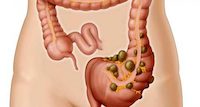 There are a few serious medical conditions – some even life threatening – that can cause green stool and even diarrhea, but they generally come with other symptoms. Ulcerative Colitis, or inflammatory bowel disease are two conditions that both affect the large intestine and rectum, which can lead to green stool. Celiac disease is an inability to digest foods that can be so severe as to be lethal if left untreated for long enough. Among other symptoms, it can also cause green poop. Both ulcerative colitis and Celiac disease are treatable conditions which can be managed with medication and preventative dieting.
There are a few serious medical conditions – some even life threatening – that can cause green stool and even diarrhea, but they generally come with other symptoms. Ulcerative Colitis, or inflammatory bowel disease are two conditions that both affect the large intestine and rectum, which can lead to green stool. Celiac disease is an inability to digest foods that can be so severe as to be lethal if left untreated for long enough. Among other symptoms, it can also cause green poop. Both ulcerative colitis and Celiac disease are treatable conditions which can be managed with medication and preventative dieting.
Food poisoning or bacteria
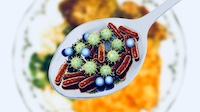 Certain types of food poisoning or bacterial overgrowth can also result in green stool. In some cases these will pass harmlessly through your system, but in other cases may be severe enough to need a visit to the doctor or even a stay in the hospital. These conditions can also cause infectious diarrhea, so it’s always better to be safe than sorry, particularly if you live with children or the elderly. While healthy individuals may sail through a bout with harmful bacteria in a few days, young people, the elderly or individuals with a weakened immune system may not fare so well. If green diarrhea is paired with a fever, vomiting, nausea or other symptoms, it is always best to see a doctor.
Certain types of food poisoning or bacterial overgrowth can also result in green stool. In some cases these will pass harmlessly through your system, but in other cases may be severe enough to need a visit to the doctor or even a stay in the hospital. These conditions can also cause infectious diarrhea, so it’s always better to be safe than sorry, particularly if you live with children or the elderly. While healthy individuals may sail through a bout with harmful bacteria in a few days, young people, the elderly or individuals with a weakened immune system may not fare so well. If green diarrhea is paired with a fever, vomiting, nausea or other symptoms, it is always best to see a doctor.
In general, if the only symptom you are experiencing is simply green stool or mild green diarrhea, there is probably no need to go rushing to a doctor right away. If the symptoms persist, however, or if they are paired with other symptoms, it is best to get checked by a doctor. The more severe the symptoms, the more quickly you want to get checked.
